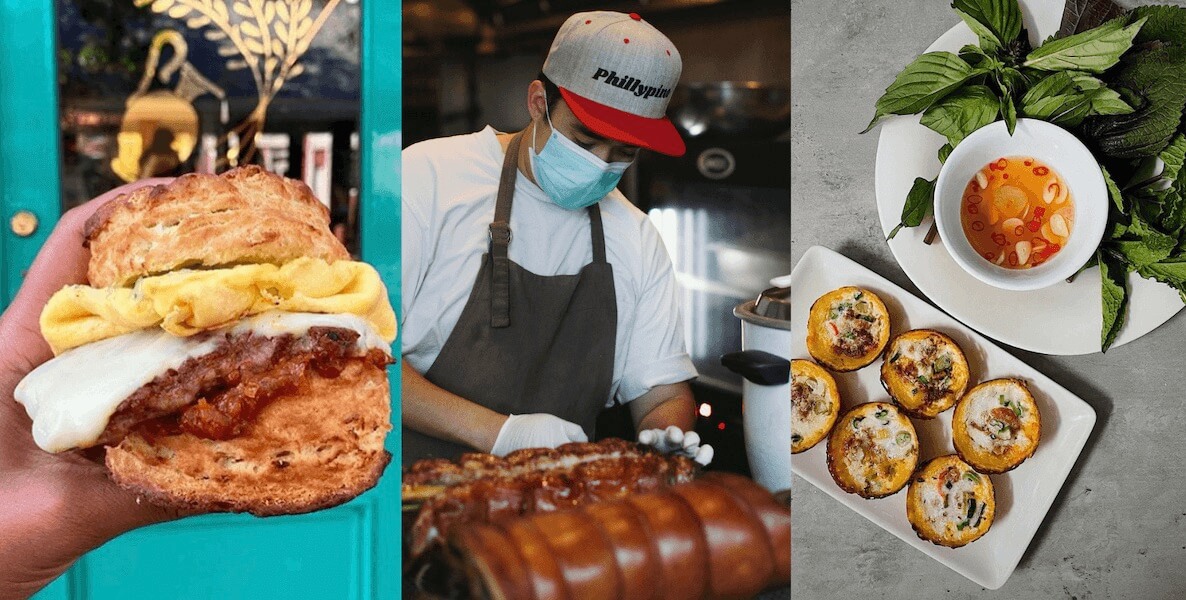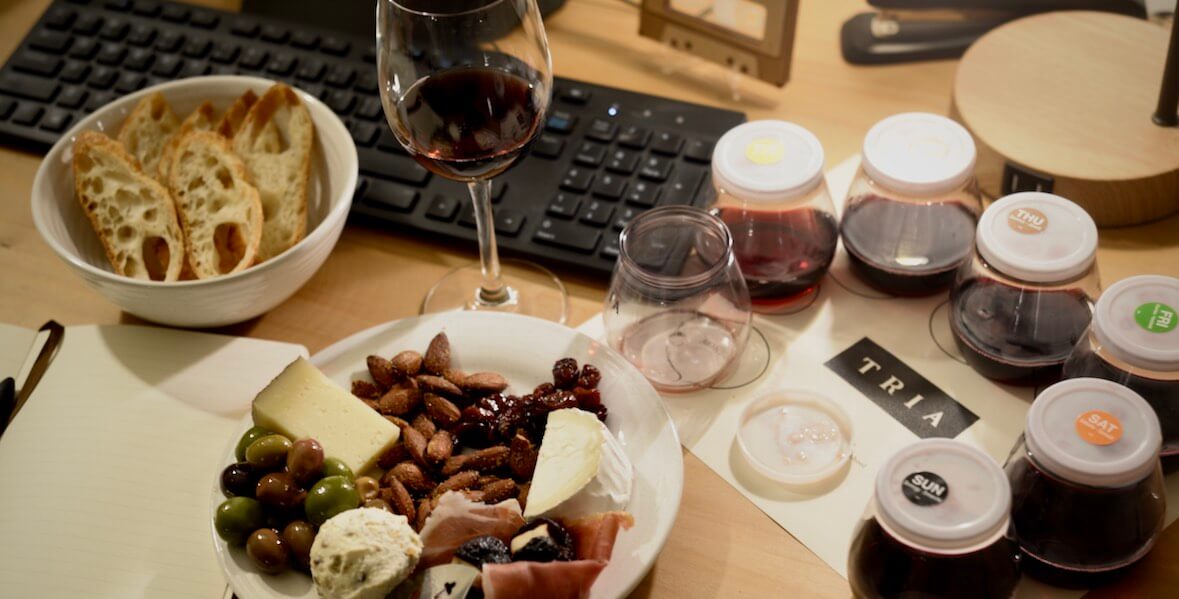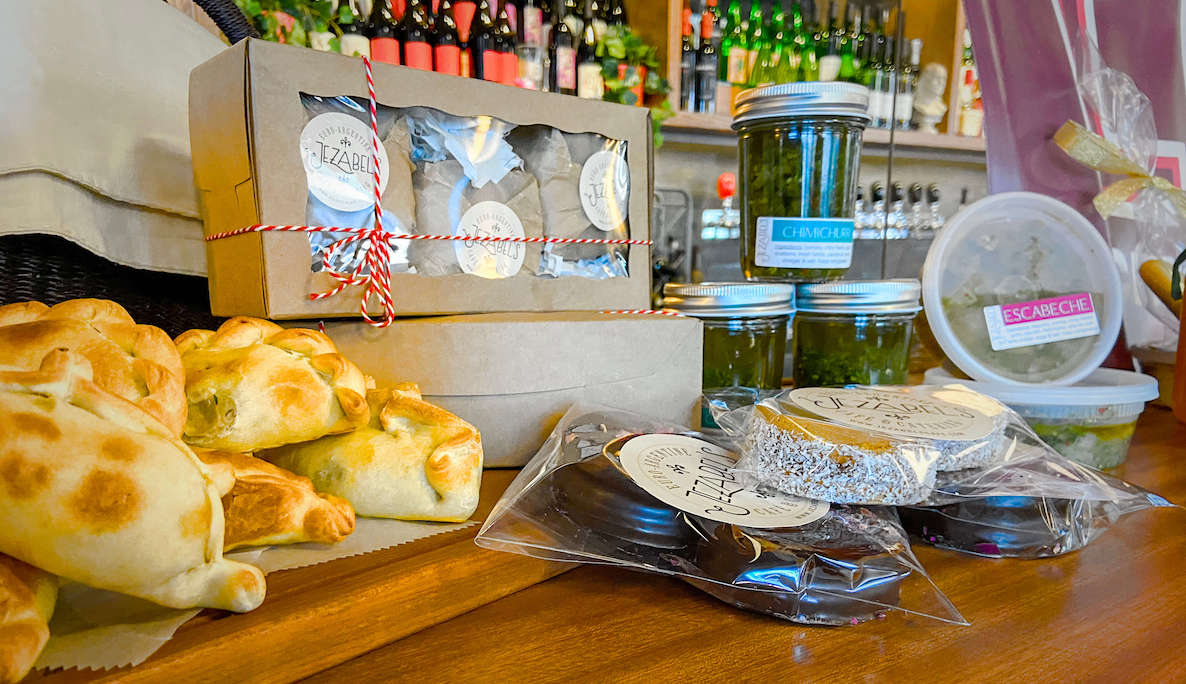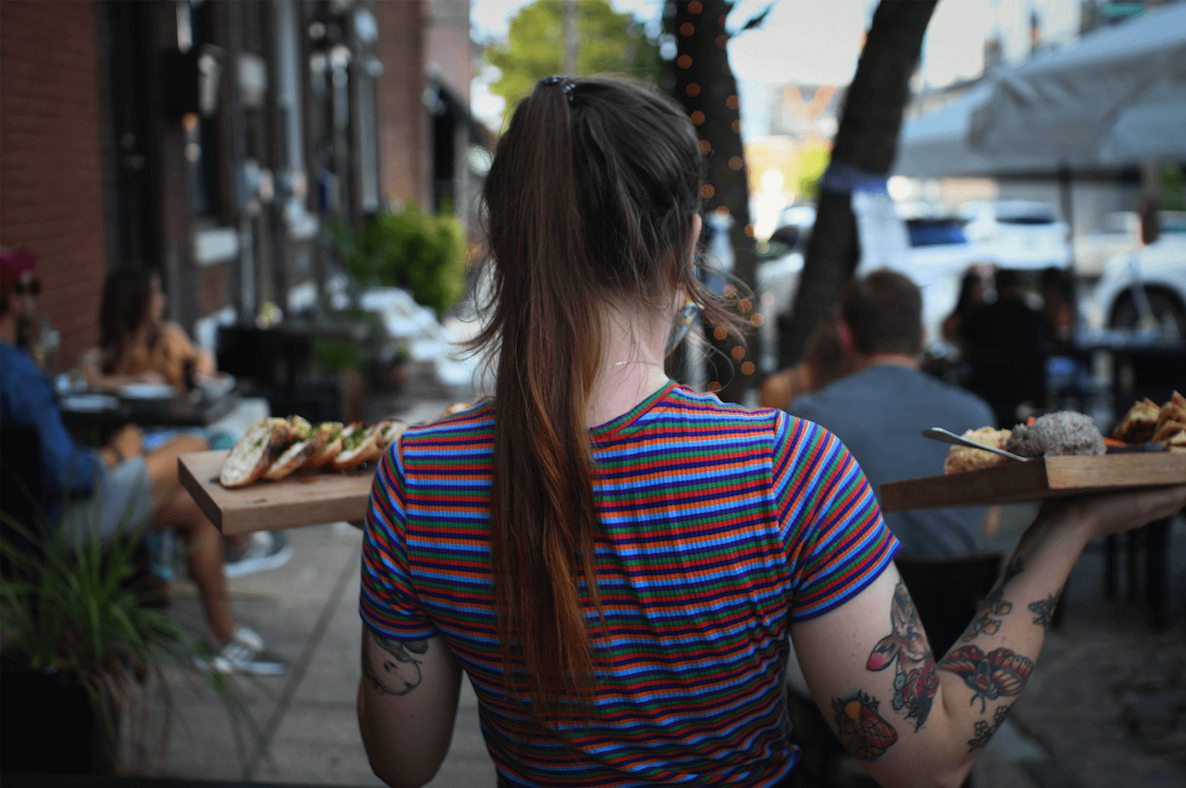In March, after 12 long months, the independent restaurant industry finally got some good news. The latest coronavirus relief package included $28.5 billion for restaurants decimated by the pandemic. “Save Restaurants!” was the rallying cry.
The money is much needed. The National Restaurant Association reports that the industry shed 2.5 million jobs and that 17 percent of restaurants had closed their doors at the end of 2020. Indeed, within two days of opening to applications last week, the Small Business Association announced that 186,000 restaurants, bars and other food businesses had already applied for assistance.
But can the government save restaurants? I doubt it.
MORE ON PHILLY RESTAURANT RECOVERY
- How Tria’s virtual wine classes helped it survive the pandemic
- Philly chefs serve those in need—with a side of social justice
- The unapologetically Black genius of chef Reuben Harley
- The best places to dine outside in Philadelphia right now
It’s not that nearly $30 billion is a pittance. And this time around, the feds have put provisions in place to make sure that mom and pops, not multimillion-dollar chains like Ruth’s Chris Steakhouse and Shake Shack, get their share. But to save themselves, restaurants need more than money to pay off debts or cover lost income.
This is no new problem
Long before we’d ever heard of a strange virus spreading through Wuhan, China, the restaurant business model was fundamentally broken.
This wasn’t always obvious to diners. In the Before Times, the American restaurant scene was certifiably thrilling: Adventurous eaters could find trendy birria tacos, porky bowls of ramen noodles and crispy arepas–sometimes in a single city block. But these culinary delights were mostly built on the backs of stressed-out owners, struggling to make rent, and underpaid workers with unpredictable schedules and few, if any, benefits.
Kitchen culture, in stark contrast to the glamour we saw on TV, was a hotbed of sexual harassment and abuse. With the exception of a few celebrity chefs and some large restaurant groups, nobody, from dishwashers to chef/owners, really had it that good. In short: We don’t need to save restaurants. We need to reinvent them.
I’ve been talking with chefs over the last year about how and whether it’s possible to create a kinder, gentler industry. (The first call I made was on April 4, 2020, when we all ludicrously believed that things would be back to normal by summer.)
In some ways, it’s not a great time to be asking big, theoretical questions; chefs are battered, exhausted by endless “pivots” and, rightly, just trying to survive. But it is also the ideal moment. It has long been an open secret that the booming industry was anything but. The problem, two chefs told me–invoking the same cliché–was that you couldn’t change the tires on a car already speeding down the highway. The pandemic brought traffic to a stop.
What would a new restaurant model look like?
No one has yet figured out exactly what a new model might look like. But on a few fronts, consensus is emerging. Menus will be smaller. (Fewer choices means the kitchen needs to stock fewer ingredients and needs less staff.) Menus will be less elaborate. (Even fancy chefs have seen the demand—and profitability—of pizza, burgers, and burritos. Extensive wine lists—and sommeliers—soon may only be found at the high end.) Pre-orders will become a lot more common. (This stops the chef guessing how many people will order the steak versus the chicken and lets him order only what he needs.)
 Moreover, restaurants may no longer be restaurants, at least as we have traditionally understood them. After a year of intensive experimentation, chefs and restaurateurs have discovered other ways to make money—pop-ups, meal kits, subscription services, even feeding the underserved in their communities. It simply doesn’t make sense to go back to (lousy) business as usual.
Moreover, restaurants may no longer be restaurants, at least as we have traditionally understood them. After a year of intensive experimentation, chefs and restaurateurs have discovered other ways to make money—pop-ups, meal kits, subscription services, even feeding the underserved in their communities. It simply doesn’t make sense to go back to (lousy) business as usual.
The add-ons will vary from place to place. Michelin-starred chef Bryce Shuman and his wife Jennifer launched Ribs n Reds, a delivery service in New York during the pandemic, which has been profitable and relatively low-stress under the circumstances. Shuman still wants to go back to restaurants: “I love that pop and that snap, the feeling of the way it works and flows,” he says, “but I don’t think there’s any reason you can’t have both.”
With the exception of a few celebrity chefs and some large restaurant groups, nobody, from dishwashers to chef/owners, really had it that good. In short: We don’t need to save restaurants. We need to reinvent them.
Or take Irena Stein, the co-owner of Alma Cocina Latina, a Venezuelan restaurant in Baltimore. Last year, she joined forces with Mera Kitchen Collective, a local catering company, to cook more than 100,000 meals for the growing ranks of the city’s hungry. The work inspired Stein to redesign her restaurant kitchen to accommodate the two distinct businesses. “We started with a grand, generous idea,” Ms. Stein told me, “and it has come back as a real business opportunity.”
Additional revenue streams translate into more money to pay workers. That’s a start. But chefs are also realizing the need to offer soft benefits, too. “It sounds simple but it’s such an ingrained mentality in the restaurant business that the chef decides everything and if you don’t like it, you can just leave,” said Edward Lee, the chef of 610 Magnolia in Louisville, KY, and restaurants in Cincinnati and Maryland.
Even before the pandemic, Lee says, young people were abandoning restaurants because other jobs offered more money and a better quality of life. In recent months, restaurants across the country, including here in Philadelphia, have complained of an inability to hire staff. “At the end of the day it’s supply and demand. And money is finite. So you’re seeing a slow move toward making conditions better for workers.”
Where Lee or his managers used to set the weekly schedules, he now sits down with staff and they hammer it out together. His team is also trying to address the absence of late-night childcare. Lee, who began his career in an era when charismatic—and often abusive—chefs were the norm, says he also is trying to just be kinder. “Ten years ago I definitely barked at people, now I wouldn’t,” he says. “People make mistakes. They are trying their best and they don’t need to be yelled at.”
The proof is in the pudding
I applaud these efforts. A flexible, respectful boss is, to many people, worth more than a small bump in salary. But truly remaking the industry will require proving a new, profitable model for restaurants.
Sean Brock, the renowned Southern chef, has spent much of the last year trying to reimagine his own model. Before the pandemic, he had planned a temple to Appalachian cuisine in Nashville, including a tasting room, casual restaurant and cocktail bar. None has yet opened. “We are going to take the opportunity to restructure everything so that we can cook meaningful food in a less stressful way,” he said. “The question we will ask for everything is Is this a sacrifice worth the contribution?”
A big part of the change will be tailoring menus, staffing and hours so that the restaurant requires fewer employees, and those that remain take home bigger paychecks. Brock is also looking at how to reduce, even eliminate the traditional gulf between what servers and cooks make. By law, cooks, who do not interact directly with diners, are not generally permitted to receive tips. Restaurants that have tried workarounds, say by adding a formal service charge, have struggled to sell the change to diners and the servers themselves who saw their earnings decrease.
Brock isn’t the only one trying to bridge that gap. One Fair Wage, a national coalition of service workers, is advocating to end all sub-minimum wage jobs, including servers who are paid just $2.13 an hour before tips. Ellen Yin, the founder and co-owner of High Street Hospitality in Philadelphia, which includes Fork, believes that changing these rules would be the most effective way to pay workers a fair wage and start to build a better, more profitable industry. She imagines a system where servers are paid the minimum wage, but are incentivized as salaried salespeople based on their performance.
“The pandemic has forced everyone to reset,” Yin said. “It would be sad not to take the opportunity to figure it out.”
The Citizen is one of 20 news organizations producing Broke in Philly, a collaborative reporting project on solutions to poverty and the city’s push towards economic justice. Follow the project on Twitter @BrokeInPhilly.
Jane Black will host restaurateurs Ellen Yin, owner of Fork and High Street Philly; Sean Feeney, co-owner of Brooklyn’s James Beard Award-winning Lilia and co-founder of the National Restaurant Association; Irena Stein, the co-owner of Baltimore’s Alma Cocina Latina; and Nicole Marquis, of HipCityVeg for a conversation about the future of restaurants on May 25. RSVP here.
Header photo of Jerry's Bar in Northern Liberties by Kristine Kennedy






